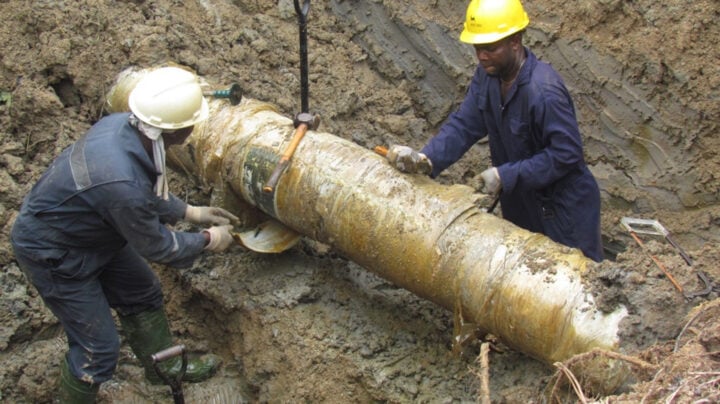Clean Ecosystem Foundation, a civil society organisation (CSO), has called on the federal government to approve a $100 billion compensation for decades of environmental degradation caused by oil exploitation in the Niger Delta region.
The demand is contained in a report by the CSO after a month-long assessment by seven environmental experts who toured nine oil-producing states in the region.
The foundation said years of oil exploration and exploitation in the region have led to irreversible damage to the livelihoods of the residents and the ecosystem.
The CSO said the fund would douse tension and hopelessness in the region.
Advertisement
“There is the urgent need for the presidency and the national assembly to pay $100bn to oil-producing communities in the Niger Delta,” Isaac Onome, the Clean Ecosystem’s executive director, said in a statement.
“This fund is needed very urgently, specifically to address the provision of health facilities and the replenishment of floundering rare animals, plants, and fish species that have been devastated for the past 65 years.
“The fund should also focus on reviving fishing and agriculture and should be worked out urgently before it is too late.”
Advertisement
Onome said he would work with local and international organisations to exert pressure on the federal government to pay the compensation.
He expressed concern over the loss of protein sources essential for proper growth and the harmful effects of pollution from gas and oil production.
“We met no fewer than 5000 people and conducted medical tests on thousands of people and soil tests in several communities. The conclusion is that the Niger Delta is a walking corpse,” Onome said.
While acknowledging the Niger Delta Development Commission (NDDC) and the Petroleum Industry Act (PIA), he argued that these efforts failed to address historical injustices suffered by the region.
Advertisement
Onome said many Niger Delta residents suffer from severe health conditions linked to oil and gas pollution, including cancer, skin problems, low birth weight, preterm births, weakened immune systems, reproductive challenges, neurological issues, heart conditions, asthma, and dizziness.
He added that the foundation is advocating a long-term, sustainable plan to address the environmental, economic, and health crises facing Niger Delta communities, noting that existing initiatives fell short and failed to reach the majority of affected residents.
Add a comment









